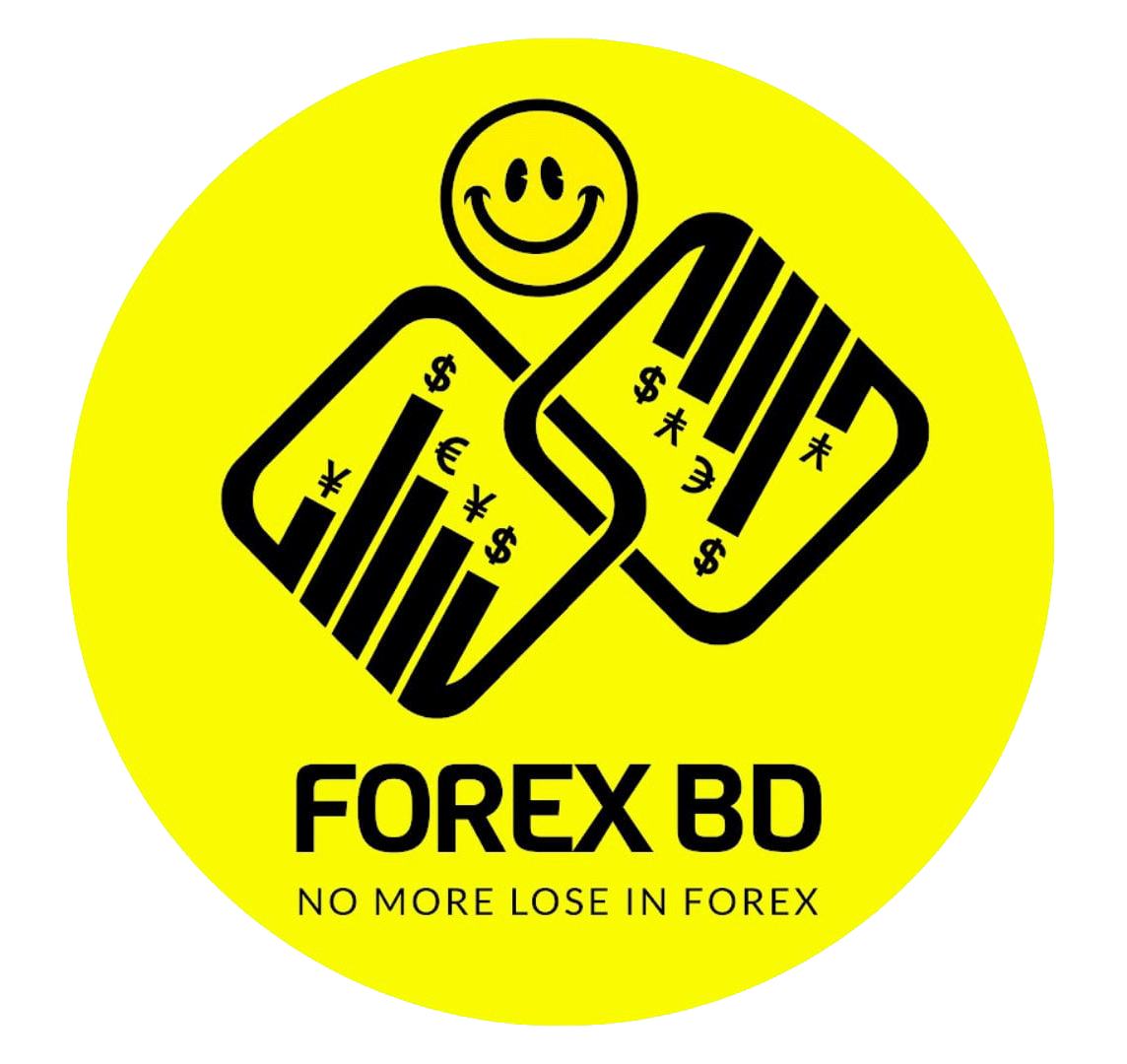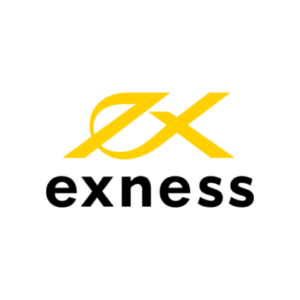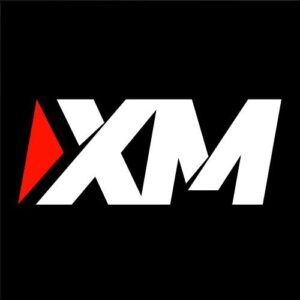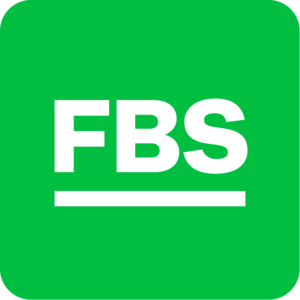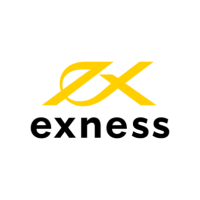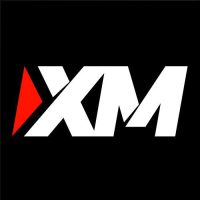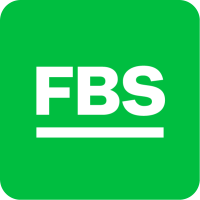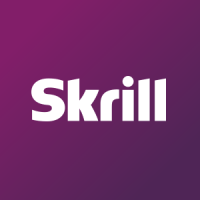ECN vs Standard FOREX Account: Which One Should You Choose?
When it comes to trading in the forex market, there are various account types you can choose from. Two of the most popular ones are ECN and Standard forex accounts. Both of these accounts have their advantages and disadvantages, and it is important to understand the differences between them to make an informed decision. In this article, we will explore the differences between ECN and Standard forex accounts and help you decide which one is the right choice for you.
Table of Contents
- What is a Standard Forex Account?
- What is an ECN Forex Account?
- Differences between ECN and Standard Forex Accounts
- Spreads
- Trading Costs
- Liquidity
- Execution Speed
- Order Types
- Transparency
- Scalping
- Slippage
- Minimum Deposit
- Size of Trades
- Market Access
- Dealing Desk
- Trading Platforms
- Which One Should You Choose?
- FAQs
What is a Standard Forex Account?
A Standard forex account is a type of trading account that is offered by most forex brokers. In a Standard account, the broker acts as a market maker and takes the opposite position of its clients. This means that the broker provides liquidity to the market and takes on the risk of the client’s trades. The spreads on Standard accounts are typically fixed, and the trading costs are built into the spread.
What is an ECN Forex Account?
ECN stands for Electronic Communication Network. An ECN forex account is a type of trading account that connects traders directly to the interbank market. In an ECN account, traders can access the best bid and ask prices from multiple liquidity providers, including banks, financial institutions, and other traders. ECN brokers charge a commission for their services, and the spreads on ECN accounts are usually variable and tighter than those of Standard accounts.
Differences between ECN and Standard Forex Accounts
Spreads
The spreads on Standard accounts are fixed, which means that they do not change regardless of market conditions. On the other hand, the spreads on ECN accounts are variable and depend on the liquidity providers’ bid and ask prices.
Trading Costs
The trading costs on Standard accounts are built into the spread, while ECN brokers charge a commission for their services. ECN accounts typically have tighter spreads, which can offset the commission costs.
Liquidity
ECN accounts offer access to multiple liquidity providers, including banks and financial institutions, while Standard accounts rely on the broker to provide liquidity.
Execution Speed
ECN accounts offer faster execution speeds because they connect traders directly to the interbank market. Standard accounts rely on the broker to execute trades, which can result in slower execution speeds.
Order Types
ECN accounts offer more advanced order types, such as limit orders, stop orders, and trailing stops, while Standard accounts typically only offer basic order types like market and limit orders.
Transparency
ECN brokers provide more transparency as they offer direct access to the interbank market, while Standard accounts rely on the broker to provide liquidity and execute trades.
Scalping
ECN accounts are better suited for scalping strategies due to their tighter spreads and faster execution speeds.
Slippage
Slippage is the difference between the expected price of a trade and the price at which it is executed. Slippage can occur on both ECN and Standard accounts, but it is typically lower on ECN accounts due to their faster execution speeds.
Minimum Deposit
ECN accounts usually have higher minimum deposit requirements than Standard accounts, making them less accessible to beginner traders.
Size of Trades
Standard accounts usually have smaller minimum trade sizes, making them more suitable for beginner traders with limited capital.
Market Access
ECN accounts offer direct access to the interbank market, providing traders with access to the best bid and ask prices. Standard accounts rely on the broker to provide liquidity and may have wider spreads.
Dealing Desk
Standard accounts may be subject to dealing desk interventions, where the broker may take the opposite position of its clients to manage risk. ECN accounts do not have a dealing desk, and traders’ orders are executed without any intervention.
Trading Platforms
Both ECN and Standard accounts can use the same trading platforms, such as MetaTrader 4 or 5. However, some brokers may offer additional platforms that are only available to specific account types.
Which One Should You Choose?
The choice between ECN and Standard forex accounts ultimately depends on your trading style, capital, and preferences. ECN accounts are more suitable for experienced traders who require direct market access and access to advanced order types. Standard accounts may be more suitable for beginner traders with limited capital who prefer fixed spreads and smaller trade sizes.
When choosing a forex account type, it is important to consider your trading goals, risk tolerance, and trading strategies. It is also crucial to choose a reputable and regulated broker to ensure the safety of your funds and the integrity of your trades.
ECN (Electronic Communication Network) and Standard accounts are two types of forex trading accounts offered by most online forex brokers. While both account types allow traders to access the forex market, they differ in terms of their features, trading conditions, and costs ( Forex, Trading, Forex BD / BD Forex / ForexBD / ForexBDLTD / Forex bd LTD / @forexbd ).
ECN Account:
ECN account is designed for professional traders who require direct market access and the best possible trading conditions. ECN account offers traders access to the interbank market where banks, hedge funds, and other institutional investors trade currencies directly with each other. This type of account is characterized by its deep liquidity, fast execution, and tight spreads.
ECN account is a no-dealing desk (NDD) account where orders are matched with other market participants. The advantage of an ECN account is that traders can trade with the lowest possible spreads as there is no middleman involved. ECN accounts are also known for their transparency, as traders can see the bid and ask prices of other market participants and can place orders at any price they wish.
However, ECN accounts often require higher minimum deposits, and commission fees are charged on each trade. Additionally, the trading platforms used for ECN accounts can be more complex and require a certain level of expertise ( Forex, Trading, Forex BD / BD Forex / ForexBD / ForexBDLTD / Forex bd LTD / @forexbd ).
Standard Account:
Standard accounts, on the other hand, are designed for beginner and intermediate traders. They are ideal for those who want to start trading forex with smaller account balances and lower risk. Standard accounts typically have wider spreads and are executed through a dealing desk. This means that the broker acts as the counterparty to the trader’s orders, and the broker’s dealing desk may adjust prices to ensure that it makes a profit ( Forex, Trading, Forex BD / BD Forex / ForexBD / ForexBDLTD / Forex bd LTD / @forexbd ).
A Forex broker is a financial services company that provides traders with access to the foreign exchange market. The primary function of a Forex broker is to facilitate the buying and selling of currencies by acting as an intermediary between the trader and the market ( Forex BD / BD Forex / ForexBD / ForexBDLTD / Forex bd LTD / @forexbd )..
Forex brokers offer traders a variety of services, including trading platforms, market analysis, and educational resources. They also provide access to leverage, which allows traders to control larger positions with a smaller amount of capital.
Forex brokers can operate in different ways, such as market makers, which set their own bid and ask prices and take the opposite side of their clients’ trades, or as agency brokers, which pass their clients’ orders directly to the market without any intervention.
Choosing a reliable and trustworthy Forex broker is important for traders to ensure that they receive fair and transparent pricing, access to a range of financial instruments, and adequate customer support ( Forex BD / BD Forex / ForexBD / ForexBDLTD / Forex bd LTD / @forexbd )..
Forex brokers play an important role in the foreign exchange market by providing liquidity and enabling traders to participate in the market with ease. Forex brokers offer a wide range of services and tools to traders, including:
Trading Platforms: Forex brokers provide traders with access to trading platforms that allow them to place trades, analyze the market, and manage their trading accounts.
Market Analysis: Forex brokers offer traders access to market analysis, including news, research, and economic data. This can help traders make informed decisions about when to enter or exit the market.
Educational Resources: Forex brokers often provide educational resources, such as webinars, videos, and tutorials, to help traders improve their trading skills and knowledge.
Leverage: Forex brokers offer traders access to leverage, which allows traders to control larger positions with a smaller amount of capital. However, it’s important to note that leverage can increase both potential profits and losses.
Customer Support: Forex brokers provide customer support to help traders with any questions or issues they may have ( Forex BD / BD Forex / ForexBD / ForexBDLTD / Forex bd LTD / @forexbd )..
When choosing a Forex broker, traders should consider factors such as the broker’s reputation, regulation, trading conditions, fees and commissions, and customer support. It’s important to choose a broker that is reliable, transparent, and offers competitive pricing and trading conditions.
Forex brokers provide traders with access to various types of trading platforms, each with its own unique features and advantages. Here are some of the most common types of Forex broker platforms:
MetaTrader 4 (MT4): MT4 is one of the most popular Forex trading platforms, used by millions of traders worldwide. It is known for its user-friendly interface, extensive charting tools, and support for automated trading through Expert Advisors (EAs) ( Forex BD / BD Forex / ForexBD / ForexBDLTD / Forex bd LTD / @forexbd )..
MetaTrader 5 (MT5): MT5 is the newer version of MT4 and offers additional features and improvements, such as more advanced charting tools, additional order types, and support for more financial instruments.
cTrader: cTrader is a trading platform that offers advanced charting tools, support for automated trading, and fast order execution. It is known for its user-friendly interface and customization options.
WebTrader: WebTrader is a browser-based trading platform that allows traders to access the market from any device with an internet connection. It is a popular choice for traders who prefer a simple and easy-to-use platform ( Forex BD / BD Forex / ForexBD / ForexBDLTD / Forex bd LTD / @forexbd )..
Mobile Trading Platforms: Forex brokers also offer mobile trading platforms that allow traders to access the market and manage their positions from their smartphones or tablets. These platforms typically offer a range of features, including real-time quotes, charts, and news updates.
When choosing a Forex broker platform, it’s important to consider factors such as ease of use, charting tools, order types, automated trading options, customization options, and compatibility with your trading style and strategy. Ultimately, the best platform for you will depend on your individual needs and preferences as a trader.
Forex brokers can be categorized into different types based on their business model and the services they offer to their clients. Here are some of the most common types of Forex brokers ( Forex BD / BD Forex / ForexBD / ForexBDLTD / Forex bd LTD / @forexbd ). :
Dealing Desk (DD) Brokers: Dealing Desk brokers, also known as market makers, act as counterparties to their clients’ trades. They provide liquidity to the market by taking the opposite side of their clients’ trades, and may also offer fixed spreads, guaranteed stop-loss orders, and other risk management tools.
No Dealing Desk (NDD) Brokers: No Dealing Desk brokers do not act as counterparties to their clients’ trades, but instead route their orders directly to liquidity providers, such as banks, financial institutions, and other brokers. NDD brokers typically offer variable spreads and faster order execution speeds than DD brokers.
Electronic Communication Network (ECN) Brokers: ECN brokers are similar to NDD brokers, but instead of routing orders to a single liquidity provider, they connect their clients to a network of liquidity providers, which compete to offer the best bid and ask prices. ECN brokers typically charge a commission for their services, but offer some of the tightest spreads and fastest order execution speeds in the market.
Straight Through Processing (STP) Brokers: STP brokers are similar to NDD brokers, but instead of routing orders directly to liquidity providers, they use automated systems to execute orders based on pre-defined trading rules. STP brokers may offer variable or fixed spreads, and may charge a commission or markup on their services.
Hybrid Brokers: Hybrid brokers combine elements of different business models, such as acting as both a market maker and an ECN broker, or offering both fixed and variable spreads. Hybrid brokers may offer a range of services and account types to meet the needs of different types of traders.
When choosing a Forex broker, it’s important to consider the broker’s business model and the services they offer, as well as their reputation, regulation, and customer support. The best broker for you will depend on your individual needs and trading style, as well as the trading conditions and fees offered by the broker.
ECN (Electronic Communication Network) and Standard accounts are two common types of Forex accounts offered by brokers. Here are the top 10 points to consider when comparing ECN and Standard Forex accounts:
Spread: ECN accounts usually offer a lower spread compared to Standard accounts. This is because ECN brokers pass on the spread directly from liquidity providers, while standard accounts may have a markup added by the broker.
Commission: ECN accounts charge a commission for each trade, whereas standard accounts do not. The commission is usually a fixed amount per lot traded.
Execution: ECN accounts offer direct market execution, which means orders are filled at the best available price in the market. Standard accounts may have re-quotes and order delays due to market maker intervention.
Liquidity: ECN accounts provide access to a deeper liquidity pool from multiple providers, while standard accounts may have limited liquidity from the broker’s liquidity providers ( Forex, Trading, Forex BD / BD Forex / ForexBD / ForexBDLTD / Forex bd LTD / @forexbd ).
Transparency: ECN accounts offer more transparency as traders can see the actual market prices and depth of the market. In contrast, Standard accounts may not display market depth and prices may be subject to markup.
Scalping: ECN accounts are suitable for scalping as traders can execute trades quickly without worrying about re-quotes. Standard accounts may have restrictions on scalping.
Trading Volume: ECN accounts are suitable for high-volume traders as they offer access to institutional level liquidity. Standard accounts may not be suitable for large trades due to liquidity constraints.
Trading Hours: ECN accounts offer 24-hour trading, whereas Standard accounts may have limited trading hours.
Hedging: ECN accounts allow traders to hedge their positions, while Standard accounts may have restrictions on hedging.
Initial Deposit: ECN accounts usually require a higher initial deposit compared to Standard accounts due to the access to deeper liquidity and advanced trading tools.
Overall, ECN accounts are suitable for experienced traders who require access to deep liquidity, fast execution, and advanced trading tools. Standard accounts are suitable for beginners and traders who prefer a simple trading environment with no commissions and low initial deposits.
Name
Details
Rating
Leverage: 1:30 | 1:500
Regulation: CySEC, FCA, DFSA, FSCA, FSA.
Min. Deposit: 5 US$
Min. Withdraw : 5 US$
HQ: Sydney, Australia
Platforms: MT4, MT5, ctrader, web trading
Found in: January 30, 2007
Deposit Methods: Bank Wire (BankTransfer), VISA, MasterCard, Neteller, Skrill, WM, PM, Crypto
Leverage: 1:120 | 1:500
Regulation: SVGFSA #151 IBC, CySEC, DFSA.
Min. Deposit: 10 US$
Min. Withdraw : 10 US$
HQ: James Street. Kingstown, Saint Vincent And Grenadines
Platforms: MT4, cTrader, web trading
EAs/Robots: ✅ Yes | News Trading: ✅ Yes | Scalping: ✅ Yes
Cryptocurrencies: 20+) Bitcoin, Litecoin, Ethereum
Deposit Methods: Local Deposit, Bank Wire (BankTransfer), VISA, MasterCard, Neteller, Skrill, Crypto. USDT
Regulation: CySEC, FCA, DFSA, FSCA, FSA, CMA
Founded: 2008
Founders: Petr Valov, Igor Lychagov
Year Founded : 2008
Deposit Methods: VISA, MasterCard, Neteller, Skrill, WM, PM, Crypto (MORE)
Year Founded : 2010
Cryptocurrencies: (5+) Bitcoin, Litecoin, Ethereum
Deposit Methods: Local Deposit, Bank Wire (BankTransfer), VISA, MasterCard, Neteller, Skrill, WM, PM, Crypto, USDT (MORE)
Year Founded : 2010
Cryptocurrencies:
 Yes
YesDeposit Methods: Local Deposit, Bank Wire (BankTransfer), VISA, MasterCard, Neteller, Skrill, WM, PM, Crypto, USDT
Year Founded : 2009
Cryptocurrencies:



Deposit Methods: Local Deposit, Bank Wire (BankTransfer), VISA, MasterCard, Neteller, Skrill, WM, PM, Crypto, USDT
Year Founded : 2009
Cryptocurrencies:



Deposit Methods: Bank Wire (BankTransfer/SWIFT), VISA, MasterCard, Alipay, Bitcoin, Bitcoin Cash, Boleto, Ether/Ethereum, Litecoin, Local Bank Deposits, M-Pesa, Mobile Money, Monero, PerfectMoney, Ripple, WebMoney
Year Founded : 2009
Cryptocurrencies:



Deposit Methods: Bank Wire (BankTransfer/SWIFT), VISA, MasterCard, Alipay, Bitcoin, Bitcoin Cash, Boleto, Ether/Ethereum, Litecoin, Local Bank Deposits, Mobile Money, PerfectMoney, WebMoney, USDT
Year Founded : 2011
Cryptocurrencies: (25+) Bitcoin, Litecoin, Ethereum
Deposit Methods: Bank Deposit, VISA, awepay, Bitcoin, FasaPay, Local Bank Deposits, Local Bank Transfers, Neteller, paytm, Skrill, UnionPay, USDT
Forex trading is a popular financial activity that involves buying and selling currencies to profit from the fluctuations in exchange rates. As with any financial activity, it is essential to choose a reputable and regulated broker to ensure the safety of your funds and a fair trading environment. In this article, we will discuss some of the top regulated forex broker houses.
Online forex trading payment methods refer to the various payment options available for forex traders to deposit or withdraw funds from their trading accounts. In the world of forex trading, payment methods play a vital role in facilitating smooth transactions, and it is important to choose a secure and reliable payment method that suits your needs.
Like, Share & Subscribe to Our Official Sites
Contact with Us :
Copyright © 2023 Forex BD
Risk Warning: Trading on financial markets carries risks. Contracts for Difference (‘CFDs’) are complex financial products that are traded on margin. Trading CFDs carries a high level of risk since leverage can work both to your advantage and disadvantage. As a result, CFDs may not be suitable for all investors because you may lose all your invested capital. You should not risk more than you are prepared to lose. Before deciding to trade, you need to ensure that you understand the risks involved and take into account your investment objectives and level of experience.
Disclaimer : Forexbd.ltd is not encouraging anyone to do forex/stock trading, as there are investments and financial risks involved. ForexBD channel or videos are educational and informative. Before deciding to invest in the forex market, you should carefully consider your investment objectives, level of experience, and risk appetite.
#ForexTrading #ForexMarket #ForexBroker #ForexSignals #ForexAnalysis #ForexEducation #ForexPlatform #ForexTools #ForexStrategy #ForexTradingTips #ForexInvesting #ForexNews #CurrencyTrading #OnlineTrading #TradingSoftware #TechnicalAnalysis #FundamentalAnalysis #RiskManagement #MarketResearch #TradingCommunity #ForexTradingSignals #ForexTradingSystem #ForexMarketAnalysis #ForexMarketNews #ForexMarketResearch #ForexTradingStrategies #ForexTrader #ForexTradingSoftware #ForexTradingCourse #ForexTradingForBeginners #ForexTradingPlatform #ForexTradingEducation #ForexTradingAcademy #ForexTradingOnline #ForexTradingCommunity #ForexTradingCharts
